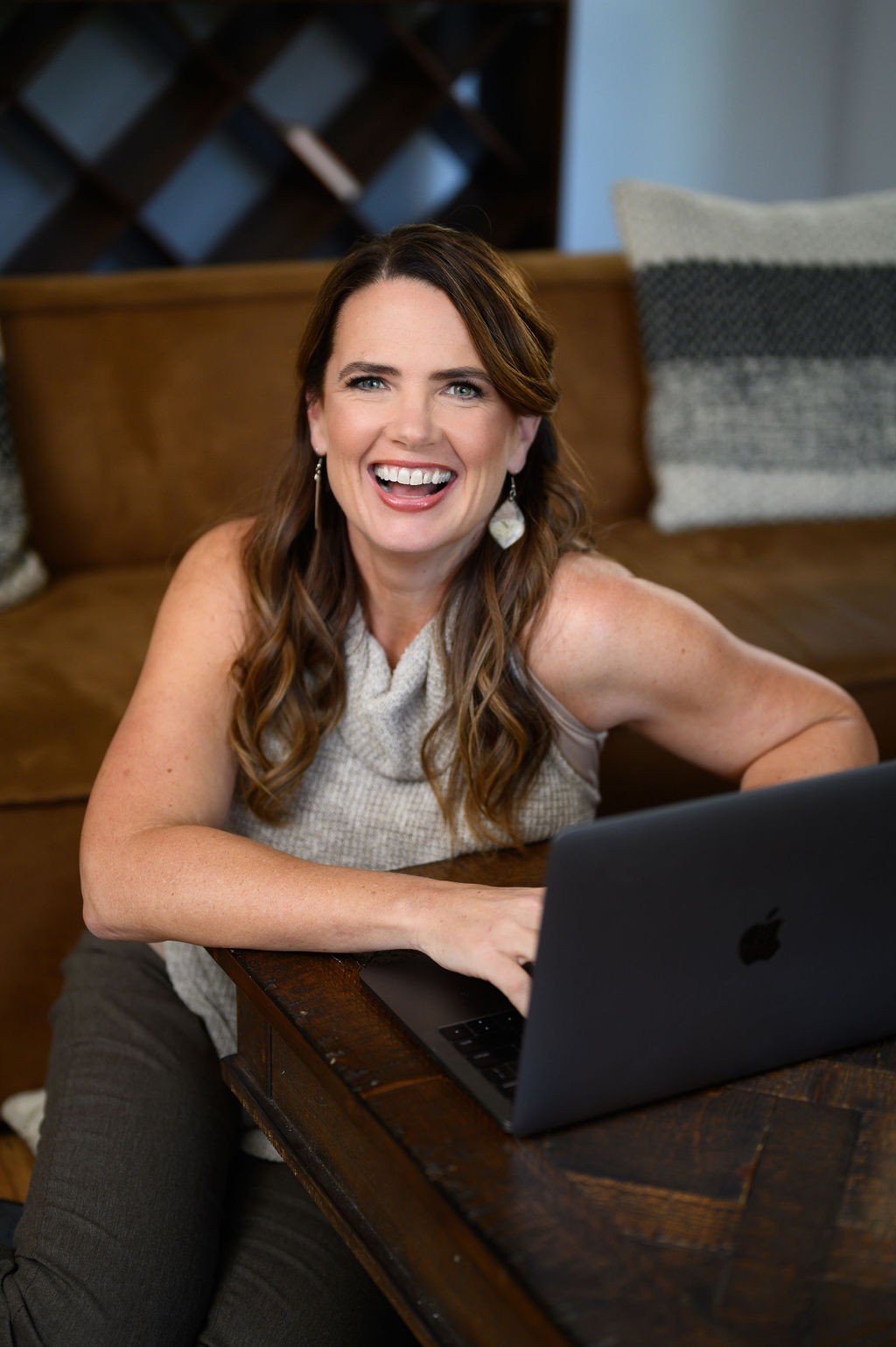We were lucky to catch up with Lisa Cumes recently and have shared our conversation below.
Lisa, looking forward to hearing all of your stories today. How did you scale up? What were the strategies, tactics, meaningful moments, twists/turns, obstacles, mistakes along the way? The world needs to hear more realistic, actionable stories about this critical part of the business building journey. Tell us your scaling up story – bring us along so we can understand what it was like making the decisions you had, implementing the strategies/tactics etc.
I started my copywriting business on Upwork about 5 years ago. I had 50 clients my first year and made around $125,000. I worked too many hours, but was happy it was actually working.
My second year I brought on 2 freelancers and doubled my revenue. My third year I built an agency and we earned just about $500,000. But, revenue is not the same as profit.
I made the same amount of money in my back account my second year as I did my third year, but running an agency was 3x the work.
Scaling isn’t always linear, or profitable. My fourth year I went back to being a solo copywriter with one freelancer and earned $350,000 and kept most of it in profit.
Scaling means different things to different people. What you really want is growth. Expansion, and stretching yourself as a human being. We just get to use our business as the labratory to experiment.


Lisa, love having you share your insights with us. Before we ask you more questions, maybe you can take a moment to introduce yourself to our readers who might have missed our earlier conversations?
I’m a freelance copywriter, who started writing blogs and emails on Upwork 5 years ago. Since then I moved into copywriting, specifically for websites and sales pages. I do a lot of consulting to help businesses get clarity and create a simple brand message.
4 years ago I was approached by other freelancers to help them learn to earn more money on Upwork. I started Full Thrive, a company that helps freelancers build thriving businesses on Upwork. I teach, coach, and create courses for freelancers in the area of sales, discovery calls, proposals, pricing…all things that can be tough to know when getting started.
Last year I launched my third business The Copy Collective to focus on training, coaching, and vetting copywriters with the goal to build a marketplace platform (much like Upwork) to connect copywriters and clients.


We’d love to hear the story of how you built up your social media audience?
I built my Facebook Group from 80 people to almost 8000 members in the past 4 years. It was a very slow build, as I also include 3 questions they must answer before being allowed to join, including sharing their email address.
I built this 3 different ways:
1. Each month (sometimes each week) I taught a live masterclass or live training and invited people to join. The masterclass / or training was always held in the Facebook Group, so they had to join to watch. I kept the replay up for 5 days incase people were late and still wanted to join in order to watch the training.
2. I used Facebook Ads 4 times over 4 years (right before a very large masterclass) and would add anywhere between 200 – 1000 members during this one launch period. Again, the free masterclass they were signing up for was going to be shown in the Facebook Group, so once they registered, they had to join the group to watch.
3. People invited or recommended their friends or network to join. Many people would post in other Facebook Groups and then I would get an influx of 10 – 20 people at one time.
Have any books or other resources had a big impact on you?
As a freelancer, there are many things that are not in our control. Finding clients can sometimes feel like a numbers game, and if we’re not careful, we can begin to take rejection personally, which will really slow down business growth.
The Four Agreements by Don Miguel Ruiz is a classic personal development book that covers 4 main principles which I believer are incredibly helpful for any business owner:
1. Be impeccable with your word. Which means to be honest with yourself and others. Do what you say you are going to do. Say what you mean is true to you. And don’t speak against yourself, use your words to encourage.
2. Don’t make assumptions. This is critical when working with customers and clients. Oftentimes we make up stories in our heads about why someone doesn’t buy from us, or doesn’t reply to our proposal, or stops communicating all together. We never know what’s going on in someone else’s world, so it’s important to not make assumptions, which is a poor use of our time and energy (and emotions).
3. Don’t take things personally. Just like the point above, we never know what someone is REALLY thinking. We worry too much about what people mitght think of us, but in truth, they are really only thinking of themselves. Any emotion, anger, frustration a client or customer is feeling is only a reflection of what is going on in their heart and mind. We cann’t control it, so we must not take it personally.
4. Always do your best. This looks different on different days, but the goal is to do the best you can in the moment, with the information and resources you have. If you have done your best, then there is nothing else you can do.
Contact Info:
- Website: www.fullthrive.co
- Instagram: https://www.instagram.com/lisacumescopywriter/
- Facebook: https://www.facebook.com/groups/fullthrive
- Linkedin: https://www.linkedin.com/in/lisacumes/
- Youtube: https://www.youtube.com/channel/UCY8NhDtp7vuR944M5NV9ckg


